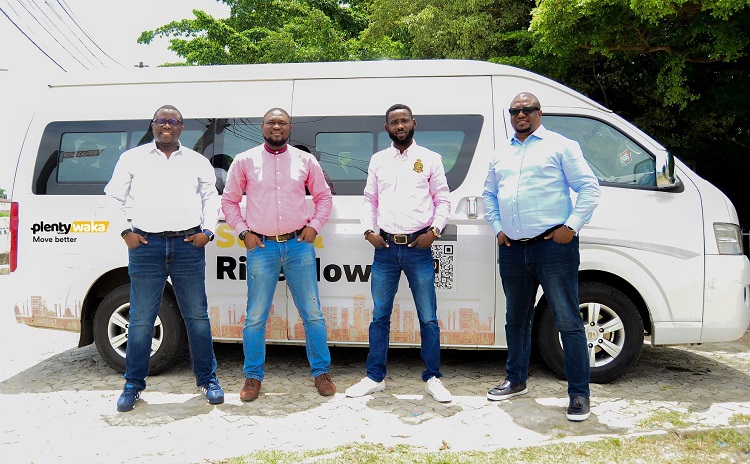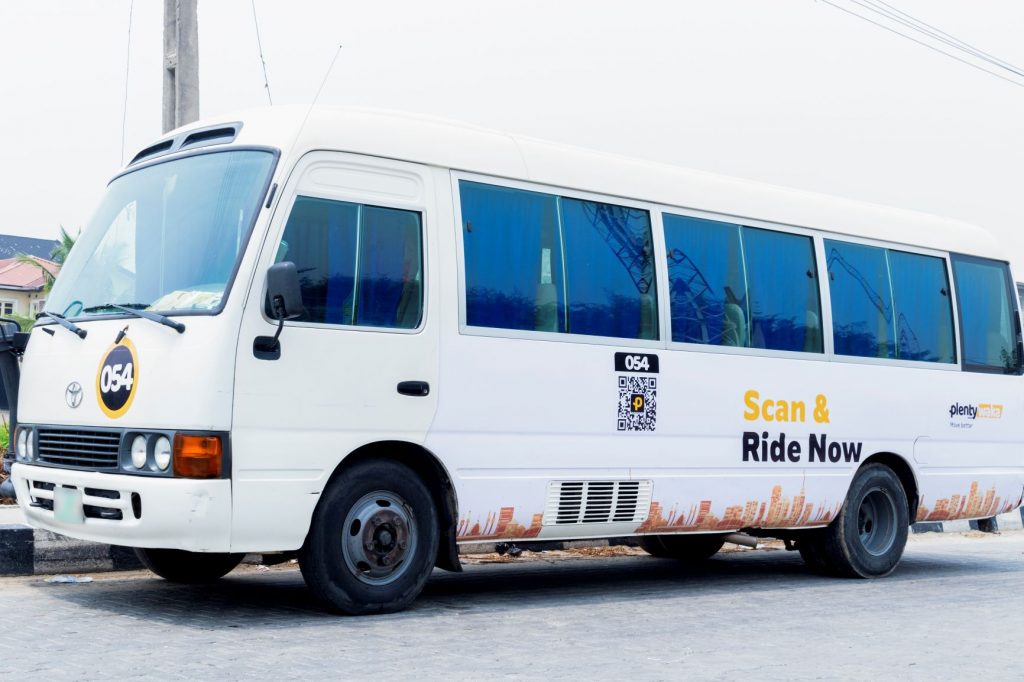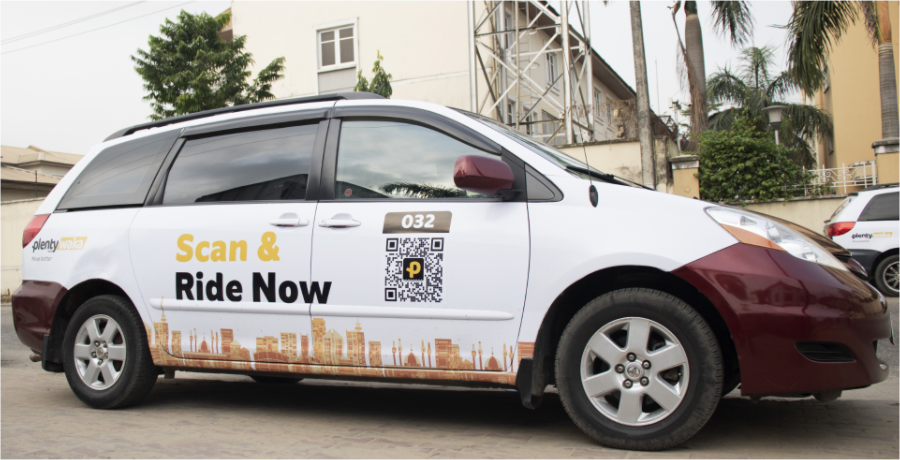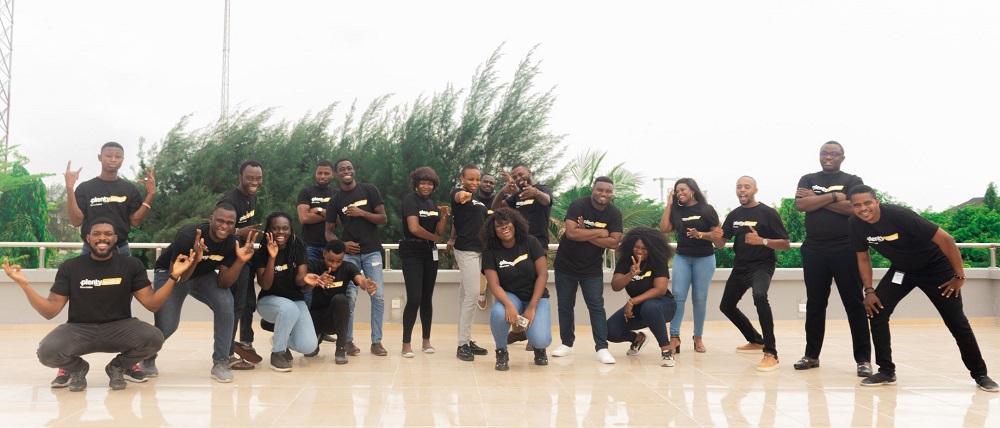The Nigerian tech sector overall has witnessed tremendous growth during the year. From fintech to healthtech, logistics and e-Commerce, different sectors of the tech ecosystem recorded varying degrees of success despite huge shortcomings occasioned by several future-altering occurrences during the year.
According to data gathered by Startuplist Africa on the African Startup Ecosystem, Nigerian tech startups attracted more than 17% of the total funding realized by African startups in 2020. Total funding that came to the continent for the year was over $1 billion. This is a pointer to how considerably well Nigerian startups performed despite such a beleaguered year.
While companies like OBus and Swvl couldn’t keep up with the transportation system which the bus-hailing sector was required to play in, PlentyWaka managed to survive the system as well as the pandemic and the consequent economic downturns that plagued the year.
In a chat with Technext, Managing Director and Cofounder of PlentyWaka, Johnny Enagwolor talked about how the company fared in 2020, how the company is dealing with regulations, and other matters surrounding PlentyWaka and the transport space.
He explained that the company’s expansion drive is a strategy with which they hope to avoid getting badly hit by economic mishaps in the future. And talking about the future, against the backdrop of regulations, he believes PlentyWaka’s is already where the government is hoping to get to.
Generally, how has PlentyWaka fared in 2020, taking into consideration the difficulties occasioned by the pandemic and of course the Nigerian recession?


It has been an interesting year for us. We launched PlentyWaka in 2019 and the journey was very smooth. Traction was building, demand was so high and we were so excited about the number of users we were moving daily. While we were basking in that euphoria, the pandemic struck and that was it.
Our space which was the mobility space was greatly affected by the pandemic, we had to ground our operations at some point and that was a huge blow for us. So we began to consider what we could do differently to make sure we don’t get into this situation again in the future. We came up with a number of solutions like our staff bus solution when we started catering to essential workers and corporate clients like the banks, and also moving essential goods and services etc. Though this was new, it gave us a lot of traction and a lot of corporates now gravitate to our platform and signing up for our staff bus solution instead of exposing their staff to the risks of public transportation.
Despite the whole pandemic, in six months were able to complete 100,000 rides which is quite memorable. And even though we were shut down for 3 months, in one year we were able to still hit 250,000 users. Even after the lockdown, 63.1% of our users came back to use the platform which means we have a product which people appreciate and are willing to come back to.
Still in light of the highly disadvantageous year which saw many young companies and startups fold up, what major strategies would you say helped PlentyWaka to survive and even thrive during the year?
I don’t know if I’ll call it strategy but for me, it’s a matter of seeing a need and actually crafting out solutions that will attend to that need. Over 12 million people commute in Lagos on a daily basis. 60% of them go through public transport using stuffy-looking vehicles. Many of them want something better. Only maybe 15% to 20% of them can afford the Uber and Bolt taxi cabs on a daily basis. We’ve been able to identify this need and realise there’s a gap; people who can’t afford taxi cabs and who don’t want to use regular public transport.
We were able to come up with a business solution which provides affordable means for that category of people, more like Uber for buses. Because of what we have done and despite the pandemic which negatively affected the logistics and mobility spaces, we were able to come out of that because of the kind of service were offer which is comfort, safety and convenience in your daily commute. These offerings make people gravitate towards us and presently we have more demand and less of supply. Out of every 10 people, we are moving about 2 ½. Our services align with the new normal of post-covid and people want to identify with us because of the safety measures we have put in place.
Despite the pandemic, you were still able to expand to Abuja and we have WakaCab in Asaba etc. How does the Abuja market compare with Lagos? And why do you think a city like Asaba would be a viable market?
This pandemic has taught us that we don’t want to get into a position where our business is totally grounded in the future. And one of those things that came to mind is that it is good to play in many waters and that we need to expand into other markets. When the pandemic struck, there were other states that were on partial lockdown and people were still running their businesses. If we were in those states we won’t be totally grounded. So, we decided that post-covid we are going to embark on aggressively expanding into other states. Abuja has a lot of people who commute on a daily basis. Of course, Lagos is the most profitable state in terms of daily commute in Nigeria because of spending capacity. Abuja is quite cheaper when it comes to fares. Where people spend N500 in Lagos, in Abuja you can see people spending N100.


Another factor that drove our expansion is that we keep on getting requests from those other states. We did a survey in Abuja and people told us we need to come there. We did our route optimization and then launched there. In Asaba, you probably have to get someone to give you the number of a cab man whom you don’t even know. That’s a huge security risky already. So, we discovered that in Asaba, people don’t have secure means of commuting. There’s also a very huge population in Delta state and that’s why we moved into the state.
You went into a collaboration with Innoson Motors last year. Can you tell us in details what the nature of this collaboration with Innoson is and how that has impacted PlentyWaka’s expansion drive?
PlentyWaka and Innoson partnership is about encouraging local manufacturers. We can’t be in the mobility space and we’re not encouraging our local manufacturers. Apart from Innoson, there are others we didn’t announce. We have a partnership with Foton and our initial buses are from Keiwerem which are locally-assembled Foton buses. The reason why we are doing Innoson is for us to secure routes faster. The capital for starting this kind of business is very huge.
We have the Vehicle Partnership programme where users can bring in their vehicles and earn 85% of the revenue generated. With Innoson, our partners don’t need to spend a huge amount of money to invest in vehicles. We talk to Innoson who gives our partners vehicles to put on our platform and they get to pay over time. In doing so, we also give them brand visibility so that people can know their vehicles are durable. This has really helped us start scaling our activities in Lagos and improved our services as a company.
Let’s talk about PlentyWaka’s driver-partnership scheme. Has it been as successful as you envisaged and what are the notable challenges in that strategy?


Given that PlentyWaka is about just 14 months old, I’d say the partnership programme has been successful to a large extent. That’s because from December this year, given the whole pandemic and all that, we’ve onboarded over 86 partner vehicles on our platform. For us, that’s a huge number. At some point, we had to put a stop to onboarding Sienna vehicles because while a Sienna is cheaper than a bus, in terms of operational cost it is more expensive to maintain. It has a V6 engine which means we spend more money on fueling when it has limited passenger capacity. It has only 6 seats while a bus has 14. As such we discovered that our Sienna partners are not making as much money as they should so we explained to them and they withdrew their vehicles. Now we have only few Sienna’s on board. But our bus partners are still on and people are still buying and onboarding their coaster buses on the platform and for them to keep doing that means we are going somewhere. So far, the partnership scheme has been successful.
One new trend in the tech space is regulation. Government is trying to whip up regulations for cryptocurrency, fintech, drones. The Lagos government is implementing its taxi-hailing regulation. Do you reckon it’s a matter of time before a regulation is proposed for bus hailing and what kind of regulatory policy would you consider acceptable for the bus-hailing space?
Lagos state is coming up with bus reform system and wants to get involved with mass transit projects. They want to move people in mass while reducing the traffic congestion in Lagos state by having people leave their cars at home and use the mass transit system. When we came into this space there was no bus-hailing regulation in place. We had to make them put a regulation around that. We have been able to align with the state government as regards a mass transit plan for the long term and we understand the kind of buses the state government allows right now. They are also coming up with a reform system to also key into a technology (payment) system where people can either tap and go, book buses from an app, and generally have access to better transport system. This is already what we do so where the government is going in the future is where we are right now.
PlentyWaka established a logistics vertical at the peak of Covid-19. Many people reckoned it was a stay-afloat measure. But we are fully into the era of new normal so where is Logistics by PlentyWaka now?
The logistics vertical came from a place of what we could do differently to sustain us as a business when the pandemic came. At that point, Farmcrowdy was moving goods and services so we started moving goods and services for them and soon afterwards we started doing the same for other clients. While the traction was building, we knew it wasn’t really our core focus. We got to a point we said we couldn’t afford to get distracted as we still have a long way to go with our core focus which is bus hailing. So a few months ago we had a meeting around it and decided to shut down Logistics by PlentyWaka.
Let’s talk about 2021. What are your projections for next year, both for PlentyWaka and for the e-hailing industry at large?


We have massive plans for aggressive expansion into more states and that expansion is going to improve the number of users on our platform, number rides and the amount of revenue from our platform. There are also a number of products we are looking to launch around the transportation space which people need to watch out for. I can’t say them all now as they are still in the pipeline but everyone should follow all our platforms so they could see these products once they are launched.
PlentyWaka seems to be enjoying a quasi-monopoly as it were and it’s not because there hasn’t been competition in bus-hailing but because you survived where others failed. But do you see more bus-hailing services coming into the fray in the coming years?
We have say 30 to 50 transportation companies in existence today and they are still not enough to cater to people’s mobility needs on a daily basis be it interstate or intrastate transportation. There are also over 150,000 danfo buses in Lagos yet we still have major clusters of people waiting at the bus stops and there are no buses to convey them. PlentyWaka has not come not to become a competition but an aggregator and the pacesetter for other transport companies. We are creating a platform that helps people interested in the transport business partner with us. So why launch something similar to what we are doing when you can simply bring your vehicles to us and make 85% of the revenue without thinking of marketing and advertising etc. So PlentyWaka is not a competition to other transport operators, we are an aggregating platform for these transport companies.
In 2020 you introduce several new features to your app like the wallet, the QR Code and I believe a bus recognition feature for users. What changes and new features can we expect to look forward to in the coming year?
When we launched the platform we launched with version 1.0 of our app, today we are on version 2.0. Currently, we are doing version 2.4.4. That means after we launched version 2.0, we have upgraded our app over 40 times and added over 40 features to it. Whenever we update the app, it means there’s a new feature we want users to enjoy. Many people complain that we update our app too much but we do that because of the feedback we get from users. A lot of new features are going to come in 2021 though they are not features I can tell you right now. Our users are why we are in business so any feedback we get from them is key. We are a company that keeps on evolving and keeps on upgrading and refining the technology we have.






